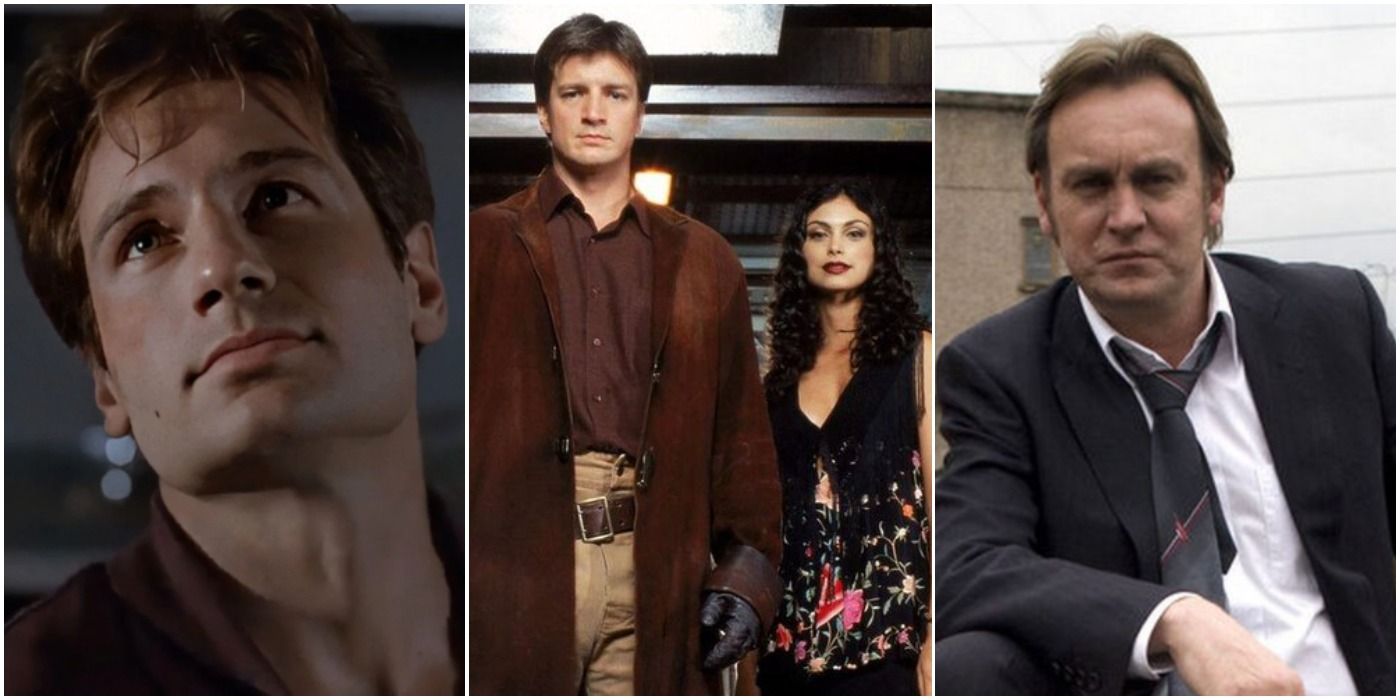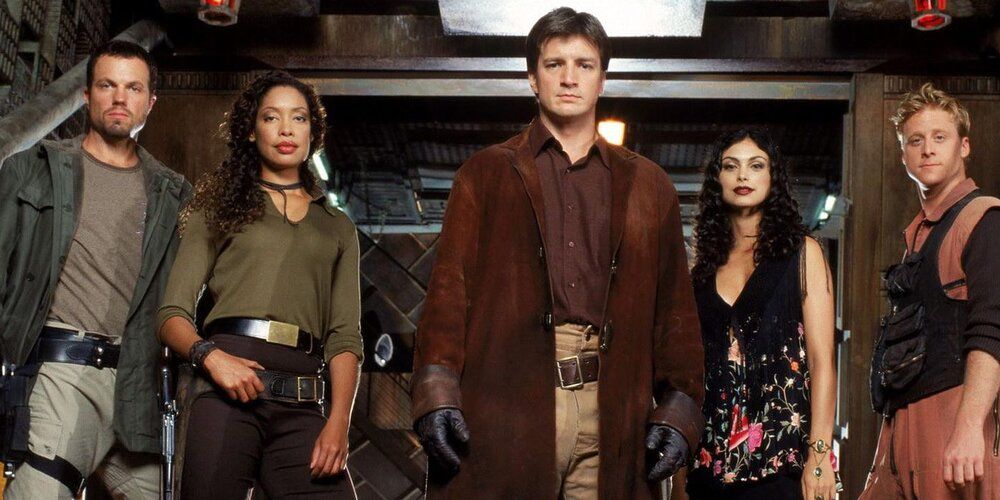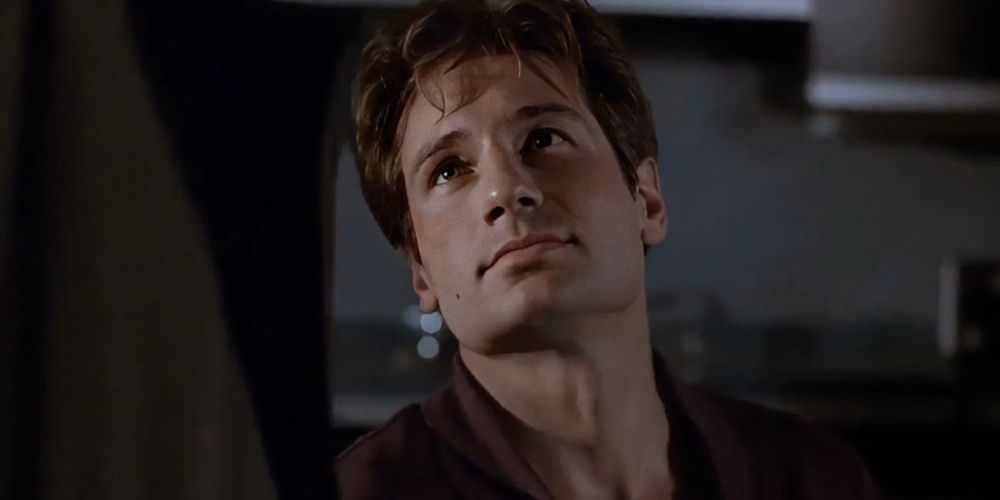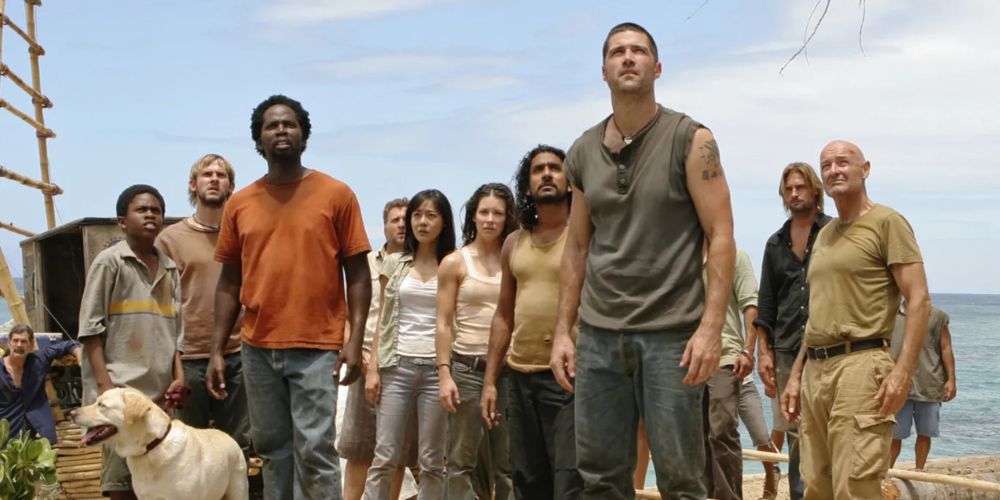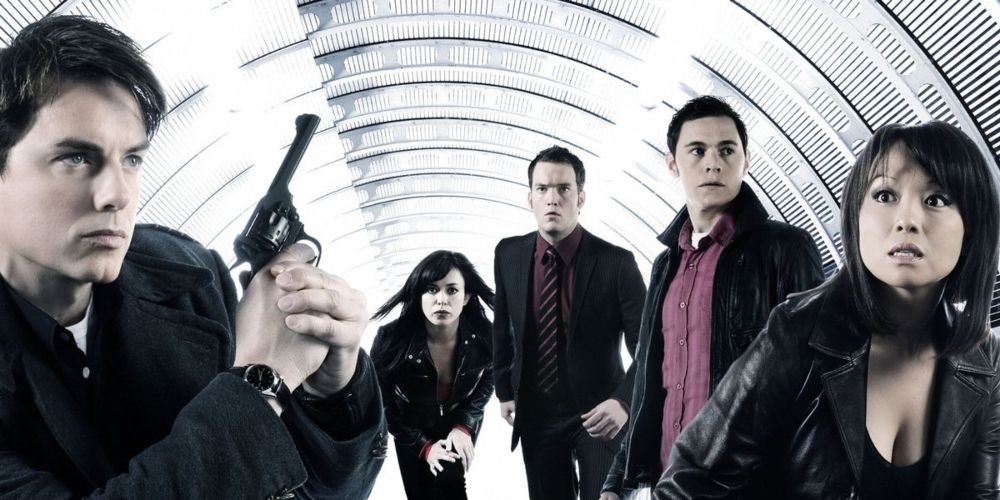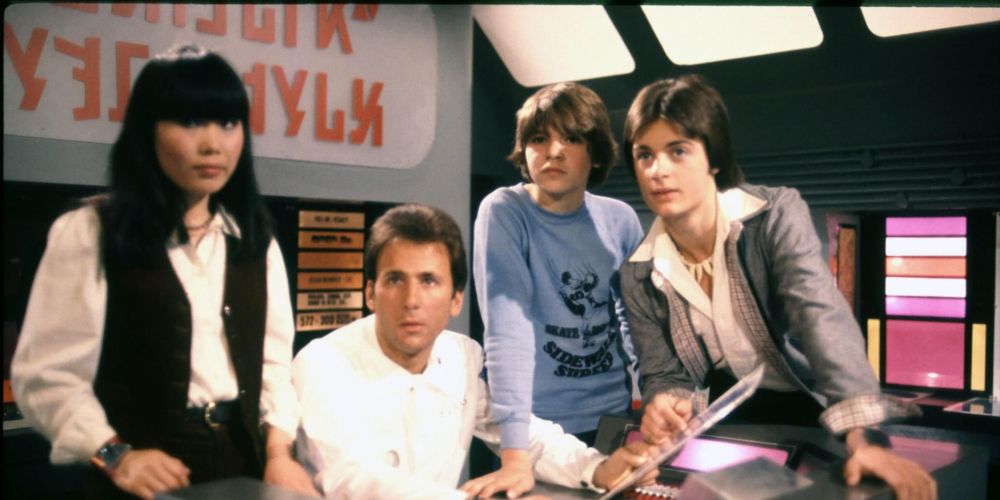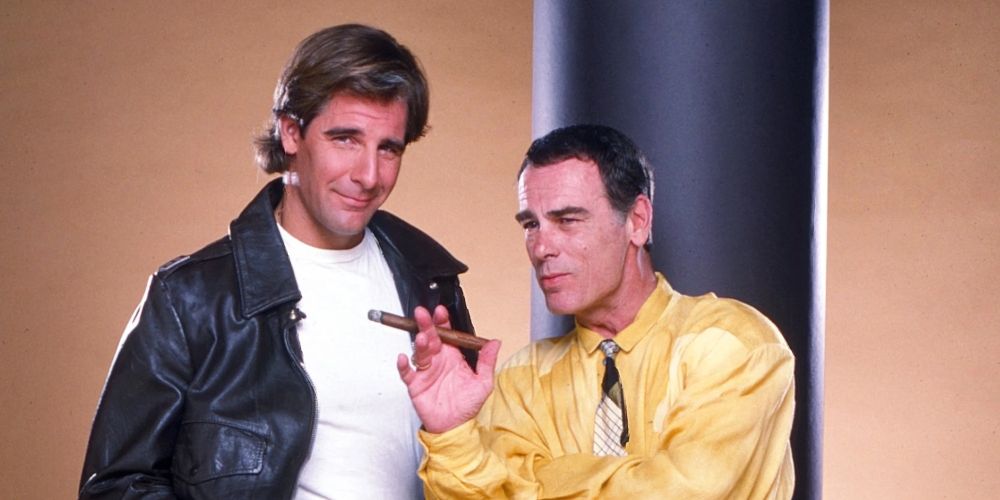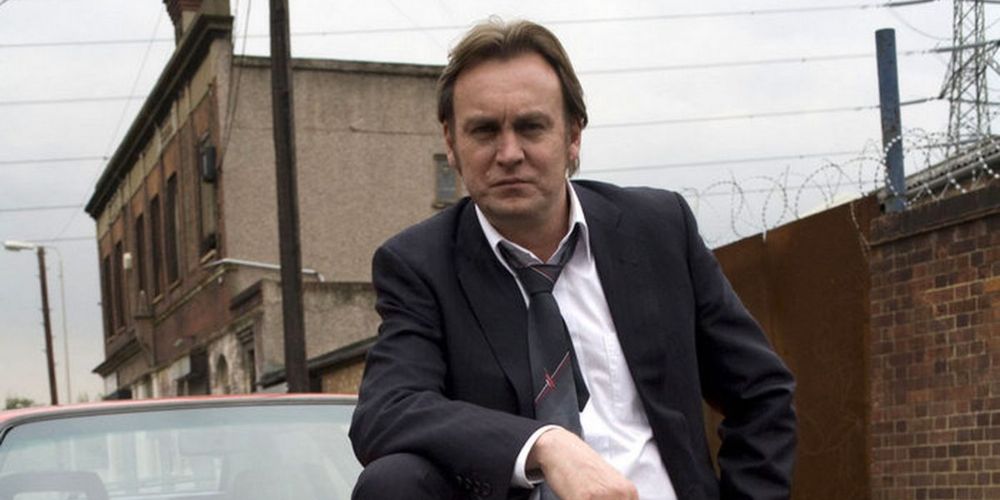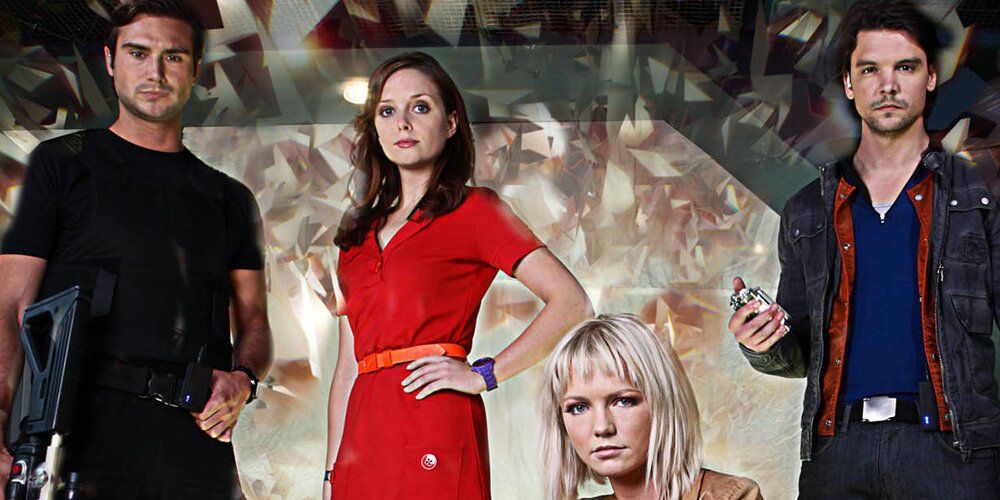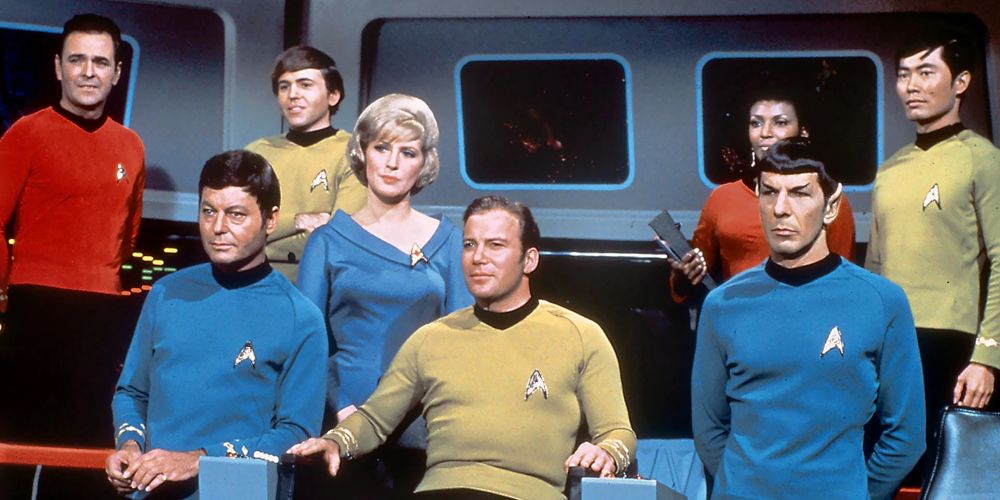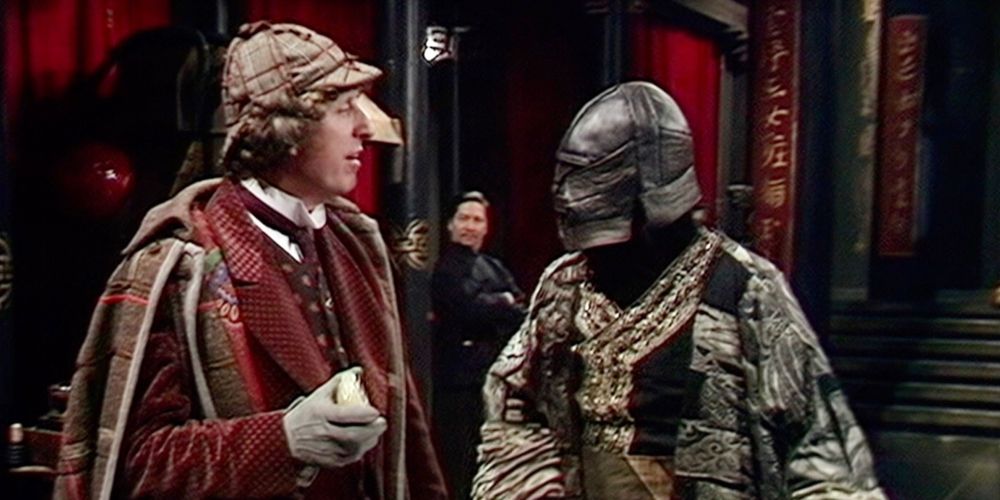Society and entertainment are two things that are ever-changing. What was once revolutionary and current television can quickly become dated and average, and behavior that was once thought of as acceptable is eventually realized to be bigoted, discriminatory, or simply morally unacceptable.
Science-fiction television often attempts to be current and even futuristic, given its scope. But it is every bit as much prey to these changes as other genres, given that creators cannot actually see the future. As a result, some science fiction shows - even those considered classics - have elements that either stylistically or socially would not fly today.
10 Firefly's Chinese-Influenced 'Verse Lacks Chinese Characters
Firefly has a unique aesthetic. It blends sci-fi and western, and its backstory features China as one of the cultures that was most prominent and powerful at the time humanity migrated to the planetery cluster known as the 'Verse. As a result, a fair amount of scenery is inspired by classic Chinese aesthetics, and many characters speak Mandarin.
Despite this, none of the principal cast are Chinese. Chinese side characters are very rare throughout Firefly or Serenity. Simon and River Tam both have a Chinese surname, and there were plans to have main character Kaylee be of Chinese descent. But, the heavy use of Chinese culture in a principally white show smacks today of cultural appropriation.
9 Conspiracy Theorists Have Changed A Lot Since The X-Files First Aired
The X-Files is fondly remembered for many reasons, but one of its most enduring aspects is the partnership between Fox Mulder and Dana Scully. Scully is an arch-skeptic who doubts everything about the existence of aliens. Mulder is a firm conspiracy theorist who is determined to uncover the truth.
In the '90s, conspiracy theorists were a fringe group who were largely seen as benevolent and attempting to hold the government to account. The rise of the internet and social changes in the 21st century has seen conspiracy theorism develop close ties to the alt-right and some conspiracies linked to antisemitism and racism. As a result, a show about a conspiracy theorist is much less comfortable.
8 Lost's Storytelling No Longer Passes Muster
For its time, Lost is a reasonably progressive show, with characters from all sorts of demographics being represented and working together to overcome their problems. Nonetheless, Lost is not perfect. The character of Kate largely exists to be a damsel-in-distress and to be the central component of a love triangle.
What many audiences find has aged worse about Lost is its plotting. Lost has become notorious for failing to provide adequate resolutions to its mysteries, and for seeming to be making it up as the plot continued. At the time, even after its ending, fans could forgive this. But with a glut of high-quality television in recent times with far more satisifying conclusions, Lost holds up less well.
7 Torchwood Glosses Over Major Sexual Crimes
In some ways, Torchwood was revolutionary. Focusing on a small team of people, all of all sexual orientation, Torchwood depicted attraction to people of various genders. However, consent is violated in a big way early on, with main character Owen using alien drugs to coerce a couple into having a threesome with him. Despite being an incredibly serious sexual assault, Torchwood brushes this off as 'laddish' behavior, and something only mildly shameful from him.
6 The Tomorrow People Is Typical Of Its Time
Before being given an American iteration by Nickelodeon, The Tomorrow People was a 1970s children's show. The Tomorrow People told the story of a superpowered ensemble who represented the next stage in human evolution attempting to live their secret lives while also, on occasion, protecting the world.
Although it strove to be informative and sensitive, and tackled difficult topics like discrimination, The Tomorrow People was fundamentally made in the 1970s. As a result, it has to deal with casual and more-than-incidental underusing of its female characters and ethnic minorities amongst the cast. Additionally, the dialogue would stand out horrendously nowadays.
5 Quantum Leap's Slip-Ups Are Egregious
Quantum Leap was made in the '90s, and featured a character originating from the early 21st century being transported to other time periods. For the most part, Quantum Leap is progressive. Sam Beckett's attitudes are not far from commonly held opinions in the 2000s towards many issues.
Quantum Leap's few slip-ups stick out like a sore thumb, however. Major character Al is casually misogynistic and even voyeuristic towards women, something that is viewed as not fodder fit for jokes today. Furthermore, Sam uses ableist slurs.
4 Life On Mars Ends Up Glorifying Its Corrupt Police
A major theme throughout Life On Mars is the clash of ideals between Sam Tyler, a professional modern-day police officer who is sent back to 1973, and his superior, Gene Hunt. Hunt is every stereotype of the archetypal '70s police officer, being openly misogynistic, homophobic, racist, and corrupt.
Several episodes feature the purge of corruption from the police ranks, and even from the behavior of Hunt himself. But nonetheless, Life On Mars has Sam begin to take on the qualities of Hunt, such as torturing suspects for information and being uncaring about search warrants. Even the creator was surprised by how widely-beloved Hunt came as a corrupt policeman.
3 Primeval Raised Eyebrows At The Time
As ITV's answer to Torchwood, Primeval follows an underfunded group of scientists, soldiers, and hangers-on as they attempt to protect the British public from prehistoric and futuristic creatures that travel to the present day. Despite many inoffensive qualities, Torchwood was controversial for a couple of reasons.
Many criticized Torchwood for a near-total lack of people of color in the cast, despite taking place in multicultural Britain, which would only be briefly rectified in the third season. Furthermore, Torchwood exploited female cast members. Plotlines were contrived to give a reason for the most prominent woman on the team to walk around in her underwear.
2 Star Trek Was Fair For Its Day, But Not This Day
Star Trek's status as a progressive show is a controversial one. Many fans can point out numerous ways in which Star Trek is racist and sexist, both more than incidentally. Others are just as quick to point out other facets of the show that demonstrate a genuine attempt to be progressive and non-discriminatory.
Ultimately, various incarnations of Star Trek are making genuine attempts to be inoffensive and to open dialogues on many deep social issues, that are hampered by the social standards of the time they were created. While the creators likely thought little of objectifying female characters or casting a Mexican actor to play an Indian man, such things have become largely unacceptable. It weakens how well Star Trek holds up.
1 Old Doctor Who Is Notorious For Its Bigotry
The modern revival of Doctor Who, despite some slip-ups, has become known as a show that strives to be progressive. Before Doctor Who's reboot in 2005, its older episodes have become infamous for the sexism and racism on display.
Doctor Who featured women who only exist for audience titilation. The Doctor would frequently talk down to his female companions in a deliberately sexist way. Characters of color played by white actors in makeup, and several characters being clear racist stereotypes, amongst many other flaws, the show has become an archetypal example of dated science fiction.

